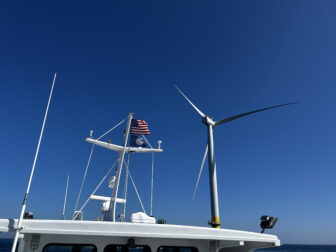Bad news from Huffington Post: The Canadian Arctic has reached the highest temperatures in at least 44,000 years. Gifford Miller, a researcher at the University of Colorado, Boulder, says, “This study really says the warming we are seeing is outside any kind of known natural variability, and it has to be due to increased greenhouse gases in the atmosphere.” This study reaffirms that global temperatures are rising at an unprecedented rate: we’ve seen a warming trend for the past century, but the process has been accelerating significantly since the 1970s and has skyrocketed in the last twenty years. Miller didn’t end on a happy note. “We expect all of the ice caps to eventually disappear, even if there is no additional warming.
A big issue from across the globe this week has been the Chinese city of Harbin and its record levels of air pollution. In fact, visibility in the city was reduced to just 33 feet as a result of the thick smog. This comes just a week after the World Health Organization officially declared outdoor air pollution to be a carcinogen. Since cancer is the leading cause of death in many Chinese cities with poor air quality, including Beijing, this confirmation isn’t likely to come as a surprise.
What is notable, however, is who has been reporting the Chinese smog data. The American embassy in the city began taking hourly readings of Beijing’s air quality and posting them on twitter, bringing international attention to the problem. The public release of data has helped raise public awareness of air quality issues in China. But Wu Xiaoqing, the Chinese vice minister for environmental protection, has also demanded that foreign governments stop releasing Chinese air quality data.
In the U.S., Power Shift 2013 is making headlines. Last weekend, nearly 8,000 student activists from 720 college campuses around the country gathered in Pittsburgh, Pa. to build the movement toward a clean energy future. CCAN’s campus organizers helped get more than 600 students from Maryland and Virginia there, and our staff was on the ground, leading trainings and strategy sessions. Check out photos here.
In the U.S., we have some good news for offshore wind power. Offshore wind power development in the U.S. has been lagging behind many other countries for years. Our first functioning turbine was built off the coast of Castine Harbor, Maine this past June. According to Tom Keirnan, CEO of the American Wind Energy Association, “we have momentum like we’ve never had before.” In July, 164,750 acres off the shores of Rhode Island and Massachusetts were auctioned off to Deepwater Wind, which says it can produce 1,000 megawatts of energy with turbines and is set to begin construction in 2017.
Southern Maryland News reported on the concerns that many Marylanders have about a proposed liquefied natural gas export facility at Cove Point. At a town hall meeting that CCAN helped to host in Lusby on Tuesday, more than 300 people showed up to learn more about Dominion Resources’ proposed facility. A sentiment that ran throughout the event was that there simply hasn’t been enough information made available to the public. As Patuxent Riverkeeper CEO Fred Tutman said, “We need to get answers before it’s a done deal.” To combat this lack of information, CCAN will be crossing the state for the next two months in a barnstorming tour to educate Marylanders about the risks of Dominion’s proposal.
Fracking is now making headlines in Virginia as the debate revs up over the U.S. Forest Service’s upcoming decision about whether or not to allow horizontal drilling and fracking in Virginia’s George Washington National Forest. Even though the quantity of natural gas under the forest remains uncertain, the oil and gas industry is fighting hard against restrictions on drilling, hoping to avoid any precedent that sets limits on their risky activity. However, citizens of nearby communities who rely on water reserves from the National Forest are fighting back to protect their drinking water supplies.
In case you missed it, CCAN director Mike Tidwell had an op-ed in the Washington Post last Sunday summarizing the dangers to the climate of Dominion Resources’ proposed fracked gas export facility in Cove Point, Maryland.






